
























Israel’s security cabinet this week unanimously backed a plan to broaden the military offensive against Hamas by relocating the civilian population and “conquering Gaza”, despite warnings from the chief of staff that it could lead to the remaining hostages being “lost”, writes Joy Falk.
An Israeli official quoted by the Times of Israel said the plan provided for the “conquering of Gaza and holding the territories.” The official said it would see the IDF take control of territory in Gaza, move the civilian population toward the south, attack Hamas and prevent the terror group from taking control of humanitarian aid.
Even in the event of a new hostage deal, far-right Finance Minister Bezalel Smotrich said the territory would not be returned. “We are finally going to occupy the Gaza Strip. We will stop being afraid of the word ‘occupation,’” he said. The security cabinet vote was announced as the IDF declared that it would mobilise tens of thousands of reservists, strengthening its capacity to operate in the Palestinian territory.
On Monday, Prime Minister Netanyahu posted on Twitter/X: “One thing will be clear: there will be no in-and-out. We’ll call up reserves to come, hold territory — we’re not going to enter and then exit the area, only to carry out raids afterward. That’s not the plan.

The intention is the opposite.”
In a move that would end two months without supplies being allowed into the Strip the cabinet also approved a proposal to renew aid deliveries in way that would minimise diversion of the goods by Hamas. It was reported that the plan would have private
Israel struck back against targets in Yemen this week, just hours after an unprecedented attack by the Iran-backed Houthi terror group, in which a missile landed on the periphery of Ben-Gurion Airport.
The Houthis launched ballistic missiles at Israel over three consecutive days, culminating in the strike that hit the airport on Sunday, leading to a brief closure of BenGurion and the evacuation of passengers from planes waiting on the tarmac to take off.
None of Israel’s usually reliable defence systems had been able to intercept Sunday’s missile.
Though no one was hurt in that attack, jubilant Houthis said they would “impose a comprehensive air blockade” on Israel by
At least 13 Conservative MPs and peers have broken ranks with the official position of their party and called for the immediate recognition of Palestine.
In a letter, organised by former education minister Kit Malthouse, the group of MPs and peers wrote: “For decades, the Palestinian people have endured occupation, displacement and systemic restrictions on their basic freedoms. Recognising Palestine would affirm our nation’s commitment to upholding the principles of justice, self-determination and equal rights. It would send a clear message that Britain stands against indefinite occupation.”
Peers signing it include Hugo Swire, Nicholas Soames and Patricia Morris.
“repeatedly targeting airports,” especially Ben Gurion.
They called on international airlines to plan accordingly and cancel all scheduled flights to Israeli airports.
But an angry Prime Minister Benjamin Netanyahu ordered 20 IAF jets to hit back.
On Monday night pilots took off and targeted areas run by the Houthis along Yemen’s coastline, striking sites in the Hudaydah port said to be vital for the transfer of Iranian weapons, military equipment, and other equipment intended for terrorist purposes.
Israel defence sources said that the air force had hit the Bajil concrete plant, near the city of al-Hudaydah.
security contractors hand out boxes of food to individual Gazan families — but any such suggestion has been rejected by the United Nations.
It is understood that the approved plans will only come into effect after Donald Trump’s visit to the region next week.
Israel’s Channel 13 reported on Sunday evening that Chief of Staff Eyal Zamir had warned ministers in recent days that Israel “could lose” the hostages in Gaza if it launches a major operation in the Strip.
Channel 13 quoted Zamir as telling ministers: “In a plan for a full-scale manoeuvre, we won’t necessarily reach the hostages. Keep in mind that we could lose them.” Zamir reportedly said the dual aims of defeating Hamas and rescuing the hostages “are problematic in relation to each other”.
Speaking at the annual Bible Contest in Jerusalem on Yom Ha’atzmaut, Netanyahu said that while freeing captives was “a very important goal”, the “supreme objective” was military victory.
“We have many goals in this war. We want to bring all our hostages home, we’ve brought back 147 alive, 196 in total,” he said. “There are another 24 alive, 59 total, and we want to return the living and the dead. It’s a very important goal. The supreme goal is victory over our enemies, and this we will achieve.”
The comments triggered a furious response from the Hostages and Missing Families Forum, who accused the prime minister of abandoning the central moral imperative of the war. The UK said it “does not support an expansion of Israel’s military operations in Gaza”.
The Rector of the University of St Andrews has been reinstated to the university’s governing body after winning an appeal against her removal over an email condemning Israel’s actions in Gaza.
Stella Maris, elected rector in October 2023, was stripped of her role as president of the university court and charity trustee last year after describing Israeli military operations as “genocidal attacks” in a message to students.
In a statement, Maris said: “This decision is not only a vindication of my position but a defence of the fundamental principles of free expression and democratic accountability within our universities.”

Jonny Greenwood has hit out at those who forced the cancellation of two UK gigs with an Israeli musician and accused those calling for freedom of expression for rap group Kneecap of double standards, writes Justin Cohen.
The June concerts by the Radiohead star and his long-term collaborator Dudu Tassa at Bristol’s Beacon and London’s Hackney Church were pulled last week. The Palestinian Campaign for the Academic and Cultural Boycott of Israel tweeted that it would have whitewashed the “genocide” of Gaza. Greenwood and Tassa revealed that the venues “and their blameless staff have received enough credible threats to conclude that it’s not safe to proceed”.
They added: “The campaign which has stopped the concerts insists that ‘this is not censorship’ and ‘this isn’t about silencing music or attacking individual artists’. But its organisers can’t have it both ways. Forcing musicians not to perform and denying people who want to hear
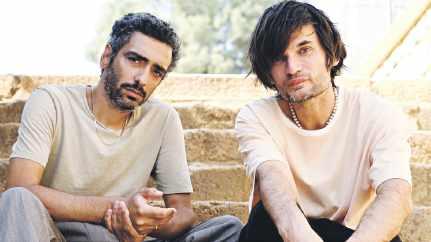
them an opportunity to do so is selfevidently a method of censorship.
“Intimidating venues into pulling our shows won’t help achieve the peace and justice everyone in the Middle East deserves. The record we are touring features singers from Syria, Lebanon, Kuwait and Iraq. The group’s ancestral and musical roots are centuries old: in Iraq, Yemen, Syria, Turkey, and all across the
Middle East – each of the members brought together by a shared love of Arabic song, regardless of where exactly they all happened to be born.
“The silencing campaign has demanded that the venues ‘reaffirm its commitment to ethical, inclusive cultural programming’. Just not this particular mix of cultures, apparently.”
Saying that artists should be
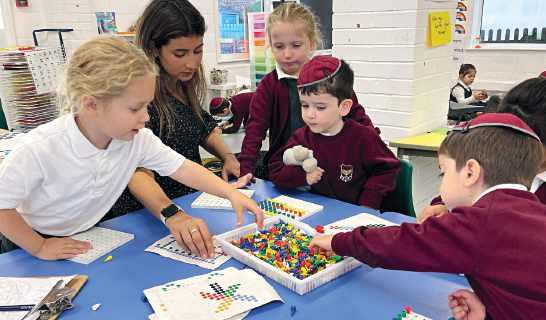
Calling all Prospective Nursery & Reception families
free to express themselves “regardless of their citizenship or their religion – and certainly regardless of the decisions made by their governments”, the musicians said they were condemned by some on the right for being “too inclusive” and some on the left who suggest they’re performing “to absolve ourselves of our collective sins”.
They refused to offer judgment on Kneecap following the recent controversy in which two of their events were cancelled and further calls from community leaders and MPs for Glastonbury to reconsider a planned performance at the festival.
The events were cancelled after footage resurfaced from a 2023 gig of a band member saying, “The only good Tory is a dead Tory. Kill your local MP.” Scotland Yard is investigating that and a clip from 2024 featuring another shouting “Up Hamas, up Hezbollah”. The group claimed they had never supported Hamas or Hezbollah.
A BBC documentary about the 7 October Nova festival massacre has won the International Emmys’ Honour Award for most impactful film to society, and two Emmy nominations.
We Will Dance Again tells the story of the Hamas storming of the site near Re’im, where the terrorists killed 360 people and abducting dozens more.
The documentary weaves mobile phone footage recorded by victims with first-hand testimony from survivors.
Leo Pearlman, producer and partner at Fulwell Entertainment, said the music festival massacre “is the site where the juxtaposition between good and evil was most apparent. It is the reason why this film, that I had the privilege to produce, is both the most important project I have ever worked on and the one I most wish I never had to”.
First aired on BBC Two, the film has drawn praise for its raw depiction of trauma, courage and humanity in the face of terror.
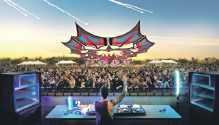
A community security volunteer has received Hertsmere Council’s Dave Rankin Award for his contribution to public safety.
Neil, whose full name is withheld for security reasons, was presented with the gong as part of the Civic Awards. He serves as the Community Security Trust’s regional head for Hertfordshire.
The awards are given to individuals and organisations who have shown exceptional dedication to improving life in the borough.
CST said: “We are so delighted that Neil has been awarded the Hertsmere Council’s Dave Rankin Award.
“Neil’s tireless dedication, unwavering commitment, and steadfast support truly embody the spirit of this award. Thank you Neil, for everything you do.”
Neil said he was “truly honoured”, adding: “The safety and security of our community remain our priority, and this award reflects the collective effort to make a difference.”
The UK wing of Natal, the non-governmental Israel organisation providing trauma and mental health treatment, has appointed former Jewish Women’s Aid chair Caroline Ratner as its chief executive.
Natal was founded in 1998 to treat Israelis and their families who have suffered trauma directly or indirectly as a result of terror, war and military service.
lence for PTSD treatment, Ratner, who left JWA in February after six years, said: “It is an honour to lead UK Friends of Natal at such a critical time. Natal’s work is based on principles that are close to my heart – compassion, healing, resilience and empowerment.
Limited places available for September 2025
Tuesday 24th September
On joining Israel’s leading centre of excel-
“I’m excited to start raising awareness, cultivating partnerships and raising much needed funds to ensure that trauma survivors in Israel receive the support they need.”
Wednesday 30th October, Thursday 14th November
We will be holding open mornings at 10 am
Monday 19th May
we will be holding open mornings at 10am
Thursday 22nd May
You will have personal tours of our wonderful school, get to meet our Head Teacher and see the school in action. Some spaces are available across the school.
Jewish Care has been named legacy fundraising team of the year at the Legacy Giving Awards, beating national charities including Oxfam GB, MND and Action for Children.
small team of three people”, adding: “Jewish Care is truly punching above its weight with a bright future in legacy fundraising.”
To attend, please email admin@hasmonean-pri.barnet.sch.uk or phone the Office on 020 82027704
If these days are not convenient please call to make an individual appointment. email admin@hasmonean-pri.barnet.sch.uk or phone the Office on 020 82027704
The award, presented at a ceremony in London last week, recognises the success of Jewish Care’s three-person team in delivering outstanding results through creative community engagement and innovative campaigns.
The judges said the charity had shown “the remarkable success that can be achieved by a
The charity’s Beyond Incredible legacy campaign, created by the agency Creative Clinic, was also a finalist for legacy campaign of the year. Other Jewish organisations also received honours: Magen David Adom UK’s Howard Taylor was named legacy volunteer of the year. Michael Ross, of Norwood, was highly commended in the legacy manager of the year category.

Two of the central figures in the diaspora’s fight against antisemitism are not confident that things will improve in the shortterm, writes Jenni Frazer.
Jonathan Greenblatt is chief executive of the New York-based Anti-Defamation League while Dave Rich, his friend and colleague, is head of policy at Britain’s Community Security Trust. Greenblatt, who this summer marks 10 years of service at the ADL, says the CST is the organisation which most closely resembles his — and expressed warm admiration and respect for the work Rich and his team do. Rich, for his part, shares that admiration, and are in constant contact.
Additionally, the ADL and the CST are part of a group known as the J7, the seven largest and most influential diaspora communities. The leaders of communities in America, Britain, Canada, France, Australia, Germany and Argentina, exchange experiences and information on a regular basis to help and support each other’s challenges.
Greenblatt says: “In the last decade, we have seen a shocking expansion and hardening of anti-Jewish attitudes in the United States and around the world. We have seen the normalisation of antiZionism at a scale which is almost mind-boggling. And we have seen Jewish people caught in the cross-hairs in an increasingly polarised and political world. I think all these trends are really very worrisome.”
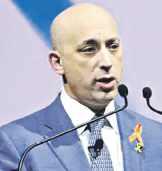

ADL does three core things, he says. “We protect, we advocate and we educate” — and in all these categories, Greenblatt says, things have never been more di cult.
Rich is in broad agreement. “What none of us foresaw, a decade ago, was the impact of algorithmically driven social media on mass attitudes towards Jews and extremism in general.” Perhaps, he says, Jewish organisations should have pushed for government intervention and regulation much earlier “in understanding the role of social media in spreading

Greenblatt echoes this. “Distrust in government is at historic highs. But there is also distrust in the judiciary, in the media, in the universities, in so many of the institutions we think of as holding up a free society. The whole enterprise of liberal democracy is being challenged, in a way that was hard to imagine not too long ago.”
On one thing Greenblatt has no doubts: “Anti-Zionism is antisemitism. This is not some abstraction, this is a reality.”

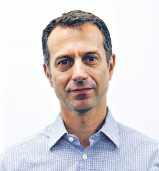


antisemitism and of hateful extremism”.
Rich believes that though there has been a massive escalation in such attitudes since October 7 2023, “most of it is not in itself new. But the scale of it — that’s what has changed the atmosphere for Jewish people in our countries.”
Greenblatt adds that the really shocking thing is how “all this has been normalised. Conspiracism has become the coin of the realm”, he says, and in the US there is a “fragmentation where people no longer get information from experts, but from influencers… in a world where conspiracism is considered acceptable discourse, we shouldn’t be surprised that antisemitism just becomes commonplace”. For ADL, he says, the real horror, which was not foreseen, was the level of influence carried by
populist broadcasters such as Joe Rogen and Tucker Carlsson, who Greenblatt says are “virulently anti-Israel and are front and centre of the world we’re living in today”.
It’s not, of course, just the mainstream media and social media which cause the problem: there is the trickledown e ect for both the ADL and the CST of having to operate in an environment where there is “an inversion”, according to Rich. “Once, mainstream opinion was built around facts and evidence and the conspiracy theories, or what has been called fake news, were on the fringes.”
That is no longer the case, he says. Covid, and the rise of populism and polarisation, has had “a huge impact”. While CST does work closely with government, it also knows that “for a large part of the population, government is the least trusted messenger in some ways…. the people who are spreading conspiracy theories will always see government as ‘the bad guys’. And while we always want to be completely non-partisan in tackling antisemitism, and we have to be able to work across the political spectrum of the mainstream parties, that has become more di cult in recent years”.
Rich has a nuanced take: “In theory, you can construct an anti-Zionist argument that is not antisemitic, whether that is from parts of the charedi community, or from some Utopian fantasy about a di erent political arrangement between Israelis and Palestinians. But in practice, the anti-Zionism that we see today is antisemitic, in language, in goals, in methods.
“There is no other conflict on earth where a bunch of people, who call themselves progressive, look at that conflict and say that the way to solve the conflict is just to get rid of one of the countries – it shouldn’t even exist. That’s a fundamentally racist position, it can’t be anything else.”
CST’s work has also shifted in emphasis since 7 October. Rich says it is now also dealing with those expressing support for Hamas and calling for violence against the Jewish community. He refers to “a few” cases that have come to court and in which CST has “been involved in research and reporting to the police”.
The community as a whole, he says, could learn from ADL when it comes to civil cases relating to people experiencing antisemitism in the workplace. “This is an area where institutions such as universities or hospitals need to be held to account. We have rights and if we don’t exercise those rights, they wither away and we may as well not have them. We will see more and more of this kind of thing in the UK, and we have to redraw the boundaries as to what is permitted behaviour in the workplace. Civil, legal cases, can be a very e ective way to deal with that.”
Eli Sharabi received a standing ovation from a 1,400-strong audience in his first public appearance in the UK since being freed in February, writes Michelle Rosenberg.
The former hostage – who discovered when he was freed that his British-born wife Lianne and their daughters Noiya and Yahel had been murdered by Hamas – spoke at St John’s Wood Synagogue for the UJIA event partnered with the United Synagogue.
His brother Yossi was killed in captivity in Gaza and the family continue to campaign for the release of his body.
In conversation with Louise Jacobs, president of UJIA, Sharabi spoke about life on Kibbutz Be’eri before 7 October, the events of that terrible day and details of his captivity in the tunnels of Gaza. He described how, as he was being kidnapped, he turned to his daughters and said, “I will be back,” and that throughout his captivity he was determined to keep his promise.
His audience included Chief Rabbi Ephraim Mirvis and the legal team that helped the families of British-linked hostages, Adam Rose and Adam Wagner. Sharabi said:

“It is very important to bring home the hostages who are alive and to bury those who are dead so that their families have a grave they can cry on. Dark-
ness is everywhere in captivity, but I am not going to give up, I will always try to find the light in the darkness.”
Sharon Sharabi, Eli’s
brother, said: “Seeing the Jewish community come together to support my brother at this special event is very moving for me. I travelled to the UK many times whilst Eli was in captivity and being here with him is extremely significant.”
Eli’s brother-in-law Steve Brisley, who months earlier had spoken so movingly from the same pulpit of his hopes for his relative’s return, said: “Sharing this evening with Eli reminded me of the everlasting bond between us, between our families, between our nations. Listening to him speak about
his experiences, about the lessons we can all learn and about the importance of bringing every one of the remaining 59 hostages home, reminded me why his voice leaves such a lasting mark. Some moments feel bigger than words — and this was one of them.”
Annabel Sheldon, the Sharabi family’s friend who has campaigned tirelessly for Eli and Yossi’s release, added: “The Sharabi family’s connection to the UK runs deep through Eli’s beloved wife Lianne, whose British heritage has created an everlasting bond between Eli and this country.”


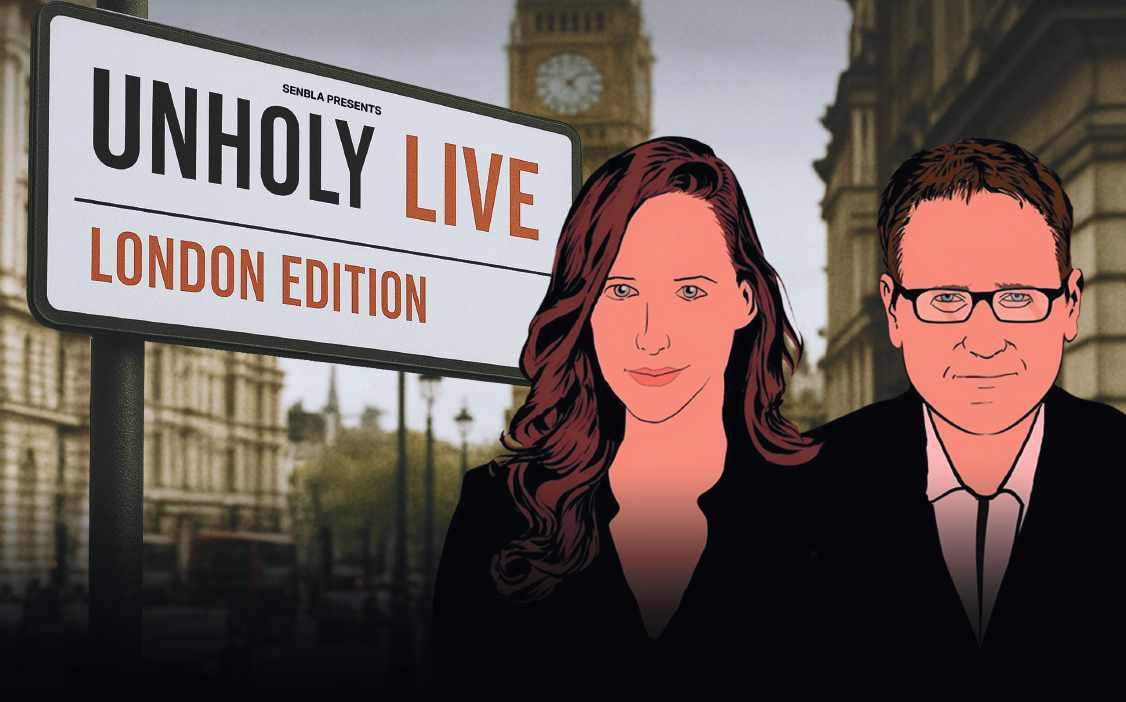

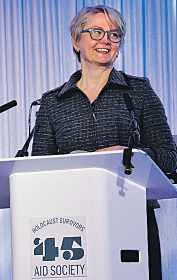
Home Secretary Yvette Cooper has praised a group of 732 Holocaust survivors who found refuge in the UK after the war as a “cherished and vital part of this nation’s history”.
After the Shoah, the children were flown from Prague by the RAF to the Lake District to start new lives. They became known as The Boys, later forming the ‘45 Aid Society to raise money for survivors and teach the lessons of the Holocaust.
Addressing nearly 600 survivors and their relatives at the annual ‘45 Aid reunion, Cooper said: “This is the 80th anniversary of the arrival of the most inspirational people, of the most phenomenal generation who built families after enduring so much su ering.
“We are here to honour how from acute pain came such purpose. What we have seen tonight is the triumph of joy.”
Cooper said she looked forward to the building of the proposed UK Holocaust memorial next to parliament, adding: “The Holocaust was the failure of democracy, and it will be a fitting reminder for the future.”
She closed by citing the “appalling torrent of antisemitism since the barbaric terrorist attack by Hamas on 7 October” and insisted: “It will not be tolerated now or ever.”
At the event in central London, memorial candles were lit by six of ‘The Boys’, accompanied by their grandchildren, before being inter-
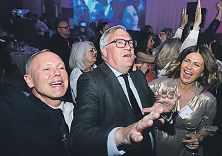
viewed on stage by Robert Rinder, himself a grandson of one of ‘The Boys’, Moishe Malenicky. National Holocaust Memorial chairs Ed Balls and Sir Eric Pickles and Rinder – whose mother chairs the ‘45 Aid Society – and Susanna Reid joined
survivors and their families in rounds of song and dance to celebrate life.
The evening’s attendees included hundreds of second, third and fourthgeneration family members, some of whom flew in from abroad to join the celebrations.
The global gathering included families from Israel, including a secondgeneration married couple whose fathers were both members of The Boys. Helena Orenstein, daughter of survivor Abraham Pawlowski, travelled from Jerusalem to “ensure we can continue celebrating life”.
Her husband, Hershy, told Jewish News: “There are so few survivors left that we must keep their story alive to negate the Holocaust deniers.”
A year-long search for social action “changemakers” to better the Jewish and wider worlds for decades to comes is launched this week by JW3, media partnered by Jewish News
The community centre is urging community members from teachers to students and artists to entrepreneurs with ideas to tackle the greatest challenges of the day to come forward for its first Social Action Incubator, Move Fast and Mend Things Things.

While the organisers will not be limiting areas for discussion, supporting refugees, interfaith dialogue and climate change are among the topics that may come up.
The full-day hackathon in July will be led and guided by JW3 using a design thinking process, with up to five big questions along with guidance, research materials and data to swot up on. As the day progresses, smaller breakout groups will start working as “one
big brain” on their favourite idea, to hone and brainstorm solutions.
Raymond Simonson, JW3 chief executive, said: “JW3 is proud not only to be the home of Jewish culture and conversation, but also a launchpad for meaningful social change. From incubating Mitzvah Day and Gateways to running the JW3 Food Bank, social action has always been at our heart.
“Rooted in our values – community, inclu-
sivity, creativity, chesed (lovingkindness), collaboration and dugma ishit (leading by example) – we’re now taking it further. The new JW3 Social Action Incubator will support Jewish changemakers to grow their impact in today’s complex world. We’re excited to partner with a diverse range of people and organisations, and I can’t wait to see the ideas and action it sparks.” incubator.jw3.org.uk for details



The Tzohar Rabbinical Organisation
Together with South Hampstead United Synagogue are delighted to invite you to a very special evening with Israel Prize Winner
Mrs. Miriam Peretz
In conversation with Bestselling Israeli Author
Omer Barak
Please join us on Wednesday • 14th May • 7:30 pm


Miriam Peretz is an esteemed Israeli educator and public speaker whose life story embodies resilience and dedication. In 1998, her eldest son, Uriel, was tragically killed during an ambush in Southern Lebanon. Twelve years later, in 2010, her second son, Eliraz, fell during clashes in the Gaza Strip. Miriam transformed her grief into a mission of hope and unity. In 2018, Miriam was honoured as the recipient of the Israel Prize. In May 2021, Miriam announced her candidacy for the presidency of Israel. Today, Miriam continues to speak across Israel and the Jewish world, advocating for unity, resilience, and the enduring strength of Jewish identity.

Omer Barak is a bestselling Israeli author, journalist, and screenwriter. Beyond his creative achievements, Barak has become known for his thoughtful reflections on the complex interplay between professional, Israeli, and Jewish identities in today’s world. With thousands of followers on social media, since October 7th Omer has come to represent a strong voice of secular Israel in search of their Jewish identity.
by Sabrina Miller in Neve Shalom
From the outside it is indistinguishable from any other small Israeli town. Children are screaming joyfully in the playground, neighbours are waving at each other in the streets and an unforgiving sun is beating down.
But Neve-Shalom (in Hebrew), Wahat alSalam (in Arabic), or Oasis of Peace – a village founded in 1972 and nestled in the Ayalon Valley between Tel Aviv and Jerusalem – is anything but ordinary. It is the only place in the world where Palestinian and Jewish Israeli families purposefully live and learn together in a shared society.
This means – among other things – that the ethnic proportion of Jewish and Palestinian residents is balanced and all residents learn both Arabic and Hebrew. The mayor is Jewish, the headmistress at the local school is Palestinian, and the town’s founder is an Egyptian born Jewish man who later converted to Catholicism.
Residents mark both Yom Haatzmaut, Israel’s independence day, and the Nakba, the ‘catastrophe’, which marks the expulsion of Arabs from British mandate Palestine. The residents here would argue this is what ordinary, quiet acts of peace and shared existence looks like.
During a two-day visit, I encounter perspectives about the war I have never heard before. Among the Jewish residents, conscientious objection is common. “I would actively try and prevent my grandkids from serving,” Eldad Joffee, the 70-year-old Jewish mayor, tells me. Some Palestinian residents meanwhile are ostracised for ‘normalising’ relations with Israelis.
Normalisation refers to the process of improving diplomatic, economic, cultural, and social ties with Israel – something rejected by some extremist pro-Palestinian campaigners who refuse to acknowledge the existence of a Jewish state in the region.
The apparent beating heart of the village is a small cafe, with blue-painted walls, owned by Rayek – a Palestinian Christian whose family has lived in Nazareth for more than 400 years.
There we also meet Mohammed Abunasser, 46, whose wife works as a neurologist in the Hadassah hospital – an example, perhaps, of the
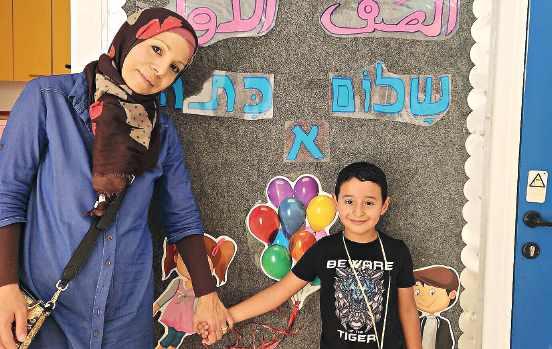
opportunities and success many Palestinians can have in Israel. Mohammed, a Muslim Palestinian who has lived in multiple Israeli cities, is self-conscious about his English (which is excellent) so we chat instead in Hebrew.
“Before October 7 I lived and worked alongside Jews in Israel and it was all normal,” he tells me. “But now, after October 7 it is hard. Arabs, Jews, Palestinians – it’s really not good.
“Because of the situation my wife wants to go back to England. She used to work in the NHS so there is a route for her. But I don’t want to. My family and home is here, in Israel. It’s tough.”
Our visit coincides with the collapse of the Israel-Hamas ceasefire deal. The mood among the peaceniks is solemn. The Palestinian residents feel this acutely. It is their people dying en masse just 200 miles away.
Especially forthright in her views is Samah Salamine, 49, a human rights activist and Palestinian resident of the village. “When my 17-yearold son is sitting on a bus in Jerusalem and he calls me, I tell him to speak to me in Hebrew. I don’t want him to speak in Arabic in public in case some soldier thinks he is doing something suspicious and shoots him.
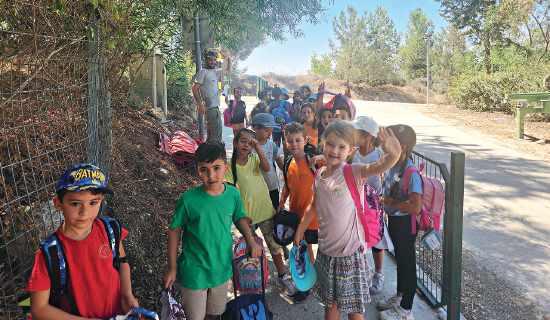
“I
their Magen David necklaces. But this is
what we have to do in Israel – hide ourselves. It’s oppression.”
At Oasis of Peace the honest conversations I had with residents did not feel comfortable. At times, they felt like betrayal of the memory of those who have been murdered or died in this war and other wars; of those massacred at Nova, shot dead in kibbutzim or executed in tunnels.
I have no doubt that the Palestinians felt the same when talking to me.
But that does not mean we were wrong to force these frank discussions. Openness and honesty are pillars of the village, I am told.
As we leave Neve Shalom–Wahat al-Salam I see dozens of children performing cartwheels in the park and kicking footballs in the playground. Watching them, it was impossible to distinguish between Israeli and Palestinian. It is a reminder of why the activists I meet relentlessly, doggedly beat the drum of peace. All of them call the land between the Mediterranean Sea and the Jordan River their home. And none of them has anywhere else to go.
This Oasis of Peace may not be perfect. But for Israelis and Palestinians living here there is no better alternative.


by Lee Harpin lee@jewishnews.co.uk
A north London-born IDF veteran who is now head of international relations for Israel’s trade union federation has called for workers’ organisations in the UK to end their hostility to the Jewish state and enter into a new era of dialogue and engagement.
Lt Peter Lerner – one of the Israeli military’s most effective spokespersons during a career of 25 years – took the post at the Histadrut six years ago.
Speaking to Jewish News after arriving in the UK for meetings with trade union representatives and politicians, the Kenton-born 51-yearold said relations between the Histadrut and its “sister organisations” in countries such as the UK could be described as “good, bad and ugly”.
JN has reported how the National Education Union, and Unite under its previous leadership, had hardline anti-Israel stances. But other unions, including the powerful GMB, have sought to prevent such a stance, recognising the link between extreme criticism of Israel and antisemitism.
Lerner said: “It is very easy just to
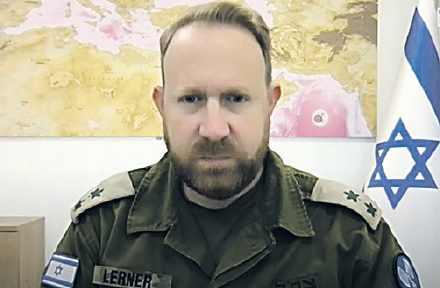
make statements or pass motions, but this doesn’t really change anything.
“How do we change? I think the changes [are] through dialogue [and] understanding. Come to Israel, meet Israelis, speak with Palestinians. Listen to the people.”
Reflecting on the mass anti-Israel protests in the UK, he adds: “It’s not enough just to wave flags and shout in the streets. The people are suffering, Israelis and Palestinians alike,
and the unions, and the trade union movement more broadly, can be a tool for transition to building bridges between Israeli workers and Palestinian workers.”
He urges the UK unions to recognise that they are the “extensive sister organisation to the Histadrut”.
“I think it’s very valuable to iron out some of the differences we have. What needs to be the accepted rule is that we are able to talk,” adds Lerner.
• Tax-efficient investing before and after Aliyah
• Tax-efficient income after 10-year tax-free period
• Receive your entire pension pot tax-free
• Specialist portfolio management for Olim
• No Inheritance Tax (for non-UK-situated assets)
We are seasoned experts in providing long-term financial planning advice for those making Aliyah. Scan the QR code to read more
With investing, your capital is at risk. Tax treatments are subject to individual circumstances and are subject to change.
“A whole bunch of things that are relevant to us, are relevant to them as well, in all of the sectors. ”
Lerner is clearly at ease in his role with the Histadrut, a job he took after his retirement from the military.
Fierce loyalty to the state of Israel led him to serve 355 days in reserve duty shortly after 7 October. But when the trade union job came along, his wife was quick to tell him it suited his political and professional skills.
For several years Lerner was a regular face on television as the IDF’s foreign affairs spokesperson, calm and assured, often in the face of hostile media interrogation.
It was perfect training for his new role, seeking to forge closer links between the Histadrut and a global trade union movement that has often adopted policies that call for a complete boycott of Israel.
Asked for his message to rankand-file union members in the UK, Lerner says: “Understand you can be critical. War is hell, trust me, I know, it is devastating for everybody.
“We didn’t want this war, but it is a reality that has been brought on us. ”
Lerner continues to explain why
he believes that the war against Hamas is a just one.
“If you just argue ceasefire now, without bringing 59 hostages home first, and making sure that Hamas never have that capability to do it again, you’re handing the initiative over to Hamas once more,” he says.
“And for us as an Israeli society, that’s unacceptable. It’s impossible. It doesn’t matter where you are on the political spectrum in Israel. That’s a reality we can’t accept because 1,200 people were butchered, murdered and raped on that day, 7th of October, many of them from our peace camp, many of them deeply involved in supporting the two-state solution.”
He adds of the hostages and of Israel’s prime minister: “I hope they will be brought home, that they will be prioritised over politics and personal survival of politicians. ”
He is also concerned about the impact Israel’s military action has on diaspora communities. Unsurprisingly, he says he thinks that trade unions, and Jewish activists within the movement must now also play a “vital role” in efforts to fix this damaging state of affairs.
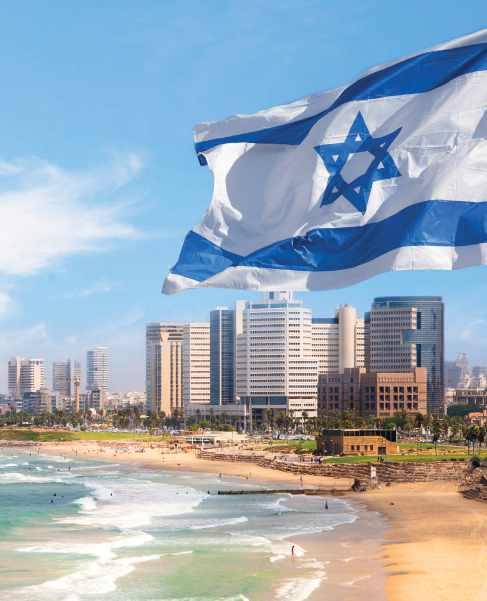
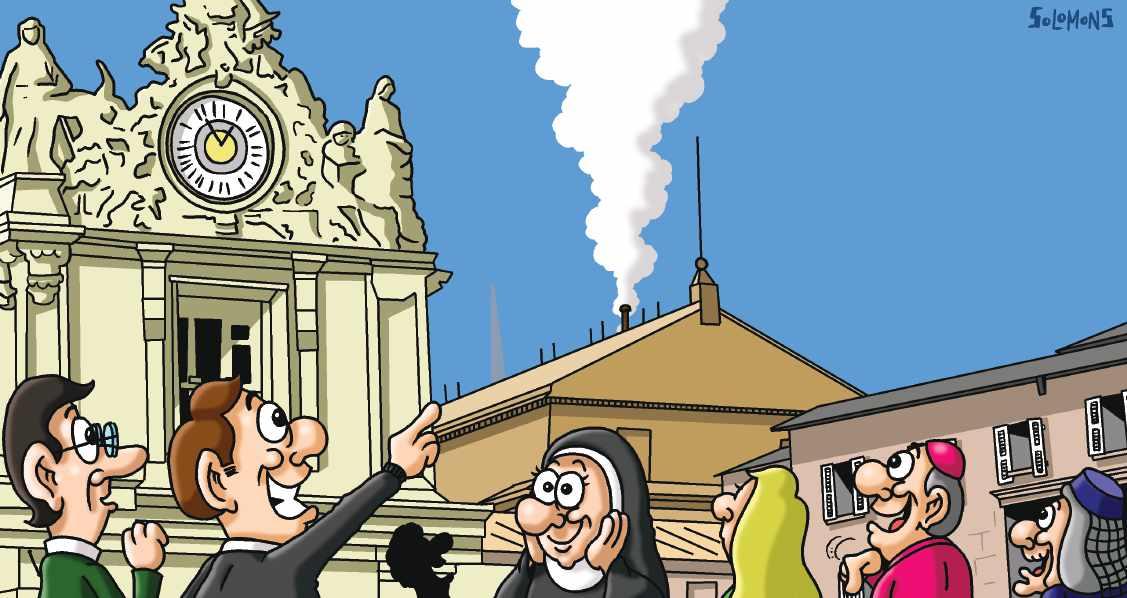
The Papal Conclave was a bad time for Yossi to start smoking salmon behind the Vatican


Wednesday 18 June, 7pm
In our divisive age, argument is seen as a plague to be avoided or a contest to be won In his new book, Beyond Dispute, diplomat and peace negotiator Daniel Taub argues that ancient Jewish wisdom offers a third way
jw3.org.uk /argue-better



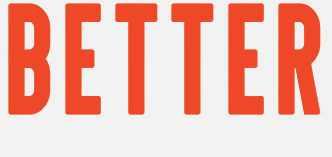




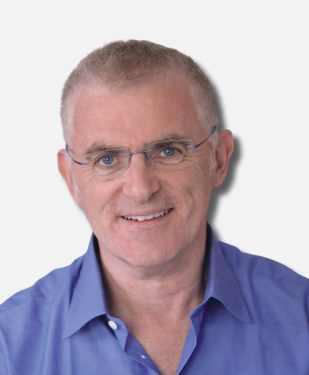


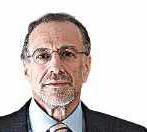



This Yom Ha’atzmaut, it is worth rereading Israel’s Declaration of Independence. Written as the nascent Jewish state was fighting a war for its existence, it nevertheless emphasises values such as “full and equal citizenship” and extends a hand “to all neighbouring states and their people in an o er of peace and good neighbourliness”.
These are the foundational values of the State of Israel. If it were being written today, it is not inconceivable that some Israeli government ministers, commentators and activists would castigate its authors as dangerously naive and worse.
Seventy-seven years on, cynical, reckless leadership is distancing Israel from its liberal and consensual founding vision. Its leaders are actively sowing division, undermining the unity and resilience of Israel and the Jewish people when it is most needed. Israel is therefore imperilled not only from outside but also from within.
The consequences and trauma of Hamas’s barbaric 7 October attack remain raw. Hamas clings to power in Gaza, still holding 59 Israeli hostages in inhuman conditions. Iran continues to sponsor forces seeking the annihilation of Israel and Jews. Jews are facing an onslaught of hatred around the world.
Yet at the same time, Israel’s government is waging a renewed assault on Israeli democracy. It has resumed war in Gaza, without articulating a coherent strategy and, independent polling shows, against the wishes of the majority of Israelis. We have heard hostage families say they believe that their government has abandoned their loved ones for political expediency. One minister said recently that “returning the hostages is not the most important thing”. In the West Bank, the government barely disguises (and sometimes boasts of) its role in enabling violent lawlessness. Israel’s standing in the world is being eroded.
Israel’s government is leading the country in the wrong direction. It is propped up by extremists, some convicted of terrorism offences. A majority regard the decisionmaking of its prime minister as driven not by national interest but by political calculations.
No one questions the right of world Jewry to speak up about the external threats Israel faces, about the extent of Hamas’s evil, the forces that back it and the vicious antisemitism of those around the world who support or enable it. We know it is our duty.
Likewise, no one should question the right of world Jewry to speak up about the internal attacks on Israel’s foundational values and, with it, the resilience and future of the national homeland of the Jewish people. World Jewry not only has a right to speak out; it has a duty.

Every Jew, everywhere, is a stakeholder in Israel, and, as the rise in antisemitism around the world on 8 October showed, our futures are interconnected.
In the UK, 36 members of the Board of Deputies of British Jews recently spoke out in a letter to the Financial Times. Their letter has probably not had the impact they wanted – subsequent debate has focused on whether they were right to publish it and how they went about it, rather than the issues raised.
There is a legitimate current debate about whether they were right to publish as representatives of British Jews rather than as individuals, whether they should have published it in a UK national newspaper rather than in Israel, and why they did not reference the suffering of Israelis from the unprovoked attacks of Hamas, Hezbollah and Iran.
But nothing they wrote expressed a view outside the mainstream of Jewish opinion in Israel or the Diaspora. Indeed, polling by JPR last year revealed that 80 percent of British Jews disapproved of Benjamin Netanyahu, despite a similar number feeling attached to Israel. Among American Jews, Pew Research shows a vast gulf between the high number who support Israel and a far smaller number who support its government.
Loving Israel but being critical of its government is not a minority position amongst world Jewry; it’s a majority.
There is, however, a loud, aggressive minority in the community who attack and seek to silence anyone raising legitimate concerns about Israel’s conduct. They will
call you traitors, demented, self-hating or worse. Even when not resorting to explicit incitement, they will attempt to portray you as fringe when it is they who better match that description. And they will accuse you of being divisive – of undermining our “unity”.
But unity is not uniformity. Unity cannot mean an extreme minority dictating to the majority what constitutes an acceptable opinion to express. When the mainstream majority who share the values of the Declaration of Independence – values of Zionism, liberal democracy, societal fairness and the pursuit of secure peace – allows itself to be bullied into silence, we fail in our moral and practical obligations to our community, to Israel and to the Jewish people.
The consequences of speaking truth to bullies are uncomfortable but are nothing compared to the risks Israelis are taking for secure peace and democracy.
The current Israeli government has demonstrated it cares more about its political survival than about the lives of the hostages and Israeli soldiers, let alone those of Gazans. Silence constitutes resignation to the fact that many more people, Israeli and Palestinian, will die.
Our silence will also guarantee that the valiant struggle of many Israelis to save Israeli democracy in the face of the judicial coup launched in January 2023 is less likely to succeed. If the government implements its autocratic agenda, Israel will no longer provide the rights to minorities which define liberal democracies and on which Diaspora Jews depend in their own countries. The gap
between Israel and the majority of world Jewry will widen further.
Our children are watching, with finely tuned antennae for cowardice and hypocrisy, and will notice if the Jewish and democratic values we teach them are riddled with contradictions. If they see us caving in to loudmouthed extremism and doing nothing to advance the “universal” values we claim to hold, we risk alienating future generations from Zionism and the Jewish people.
Earlier this year we established the London Initiative to build partnerships between Israelis, world Jewry and international allies who share a commitment to liberal democracy, societal fairness for all Israel’s citizens and the pursuit of secure peace. Polling shows we are a majority. Yet in public the majority is too often cowed into silence, behaving like an endangered minority when we are in truth an endangered majority. It is time to make our numbers count.
As world Jewry attempts to find its voice, there will be mistakes along the way. But we cannot meander along in paralysed silence for fear of getting it wrong. Let us embrace the urgency of the moment. Let us speak up for the Israel we love in the face of its external enemies, but let us also defend our values and future from those assailing them from within.
•The London Initiative is a network of accomplished individuals from Israel, world Jewry and elsewhere committed to advancing the State of Israel as envisaged in the Declaration of Independence. thelondoninitiative.org


Tthere I was with my friends Steve and John, one from a Jewish background and the other with some Jew in him, and – tired of even thinking about Donald Trump – we got to talking about how we had come by our names. And I asked, is Stephen even a Jewish name?
This has always bothered me a little. My father’s older brother Joe (who I now assume to have originally been named Yosef), though observant, changed his surname to Arnold sometime in the late 1920s. Living among the taxi drivers and department store walkers of Ilford, he then sired a line of Garys and Marilyns, presumably named after the film stars of the ‘50s and ‘60s, but giving no outward clue to their origins.
But here I was, a David Aaronovitch. My middle name is Morris. When, as a child, I asked why, I was told it was my grandfather’s name. “Morris” had died just before I was
born, but my grandmother Kate lived in a flat in Clapton, which we kids would visit every few weeks to be fed matzahs and have our cheeks pinched. She dressed like a peasant woman in smock and headscarf and, missing most of her teeth, could not pronounce the letter “s”. At least that’s why I thought she always called my father Sam, “Shammy”.
Years later, researching for a book, I came across the census record for the house in Stepney where my grandparents lived along with three other families. My grandfather had signed his entry by making his mark; he couldn’t write (nowadays the Reform Party would probably want him repatriated to Russia).
But in the entry, his name wasn’t Morris, and his wife wasn’t Kate. They were Moishe and Gitel. These are good names, so why did they need to change? For that matter, why are so many Jews called Angus or Malcolm or Siobhan? Do Scottish women get called Gitel? How many Irish Moishes are there? It’s a one-way street. It’s almost as though we were ashamed.
When I was in primary school it was still



obligatory for the day to begin with an act of Christian worship. At assembly we would sing hymns and recite the Lord’s Prayer. Meanwhile all around us were (and still are) the reminders of Christian culture. Up the hill was St Joseph’s (or Holy Joe’s, as the locals called it); there were innumerable Blessed Virgin Marys, and if you had to go to hospital… Well, you get my drift.
All this just WAS. You didn’t think about it any more than wondering whether Oxford Street led to Oxford or whether there had actually been a high gate close to Holy Joe’s at the top of Highgate Hill.
Then I came across a YouTube of a lecture about St Paul and recalled from somewhere
that, being a Jew, he had originally been a Saul. The way it used to be told by the Christians was that he had been Saul right the way up to his conversion on the road to Damascus but – blinded by the light – transmogrified into Paul.
No such thing, it turns out. Saul remained Saul after his conversion, with even the Holy Spirit addressing him by his Hebrew name. And greater authority than that is not to be had. Only when he started travelling among the Gentiles did he become Paul, and it was Luke who said so. Calling him Paul as opposed to his real name subsequently allowed Christians to gloss over his Jewish origins.
So hold on. If Paul was Saul, what about the others? It turns out that the top apostle, St Peter, was actually a Shimon, James was a Ya’akov, Bartholomew was Natanel Bar Talmei, and the Virgin Mary was the Virgin Miryam. This is a situation that needs rectifying. Things should be given their proper names. Next weekend I intend to walk in the sunshine from St Saul’s Cathedral to St Ya’akov’s Park, via St Bar Talmei’s Hospital. And from now on, call me Moishe.










9:45
9:5010:35
10:4011:25
11:3012:15
12:2013:05
13:1013:55
14:0014:45
14:5015:35
15:4016:25
16:3017:15
17:2018:05
18:1019:00
Rav Danny Mirvis
"What have the Romans ever done for us?"The story behind Lag BaOmer
Rav Danny Mirvis - Welcome
Rav Jesse Horn
Rabbanit Pesha Fischer Torah of Comfort and Grief
'From Mitzvah to Meaning': A Brisker Approach to Sefirat HaOmer
Rav Shimshon Nadel
The Vision of the Valley of Dry Bones: A Modern-day Prophecy?
Rav Yosef Zvi Rimon - "Our generation is a generation of redemption"
Rav David Milston
Rav Binyamin Zimmerman Jewish Questions of War
Rav Yehoshua Grunstein
The book or the Jew: Who overrides who?
Dr. Carl Hochhauser
Using Crisis and Adversity to Grow stronger than ever
Rav Joel Kenigsberg
Souls vs. Circuits: The Halachic and Human Stakes in the Age of AI
Rav Shimshon Nadel
The Return to Zion in the Days of Ezra & Nechemiah and the Contemporary Return
Rabbanit Karen Hochhauser
Our - אלואגד אתלחתא Reimagined Future
Rav Elli Fischer
An Early Debate about Electricity on Shabbat - on the Pages of the Jewish Chronicle
Mrs. Jen Airley
The Scene at the Mount: Preparing for Shavuot
Rav Binyamin Zimmerman
Modifying Technology for Shabbat; Enhancing or Diluting?
Rav Yehoshua Grunstein Aleinu; The End or Just The Beginning?
Rav Joel Kenigsberg From Dry Bones to a Living Nation: The Enduring Message of Yechezkel’s Vision
Orit Mark Ettinger - From Personal Grief to National Strength: Step by Step Toward the Light
Rav Yishai and Rabbanit Tzofia Englman “War, Injury, and Healing: A Personal and Family Story”
Rabbanit Noa Lewis
The Book Of Vayikra - The Book of Offering
Rav Hershel Schachter Recitation of Hallel
Dr. Yael Ziegler "Lessons from Ruth: Building an Ideal Society"
Rav Danny Mirvis From Solomon to Song ContestShir HaShirim at Eurovision 2025
Rabbanit Mical Santhouse Am I Worthy of You
Rav Alex Israel
Song of the Land: The Connection Between Adam and Adama
Rav Hershel Schachter Aspects of Sefiras Ha’Omer
Rav Doron Perez - The Great Kiddush Hashem
Rav Anthony Manning Civilian Casualties in WarA Halachic Perspective
Rav Doron Chitiz "Hamalakh Hago'el Oti" - from Yom Hashoah to Yom Ha'atzmaut - In memory of Cpt. Yaron Chitiz
Rav Reuven Taragin When Bad Things Happen: How To Deal With Personal Suffering
Rav Menachem Leibtag A ‘Holy Land’ for a ‘Holy Nation’Unpacking the Biblical meaning & purpose of “kedusha
Rav Binny Freedman Are we in a new world?
Rav Yamin Goldsmith The Jewish Response to Crisis: Diverging Paths
Rabbanit Devorah Kay A Soul’s Mission, from the Streets of Jerusalem to Eternity
Rav Bentzi Mann Beyond Physical Danger – Halachic Perspectives on Psychological Pikuach Nefesh in Battle 9:30
16:1517:00
Rabbanit Rachelle Fraenkel - The concealed matters are for Hashem - on questions and questioning in times of hardship
17:0517:55 Rav Binny Freedman - Why do Good People Suffer
18:0018:45


CLIVE
LAWTON CEO, COMMONWEALTH JEWISH COUNCIL
It is now sadly all too obvious how far South Africa has fallen from the heady days, more than three decades ago, when there was so much hope and so much inspiration, led, of course, by the remarkable qualities of Nelson Mandela.
At that time, he led South Africans in showing the world how one emerges from conflict, determined to include others for the benefit of all. South Africa’s population rose to his example and followed his lead and started the long slow business of making the country fairer for all, without rejecting anyone, after decades of apartheid.
But regrettably his successors were made of poorer stu , reaching perhaps its most disastrous nadir with the kleptocratic Zuma. So, it’s no surprise that hopes were bound to rise when the current president took o ce a few years back. Cyril Ramaphosa, surely the last of the ‘freedom fighter’ presidents,
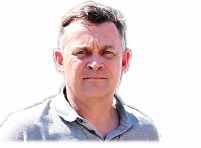
MICHAEL SCOTT
As a non-Jewish career Australian Army o cer, I never imagined that my service to my country would one day lead me to the frontlines of an entirely di erent battle — a fight against the world’s oldest hatred. But the atrocities of 7 October 2023, and the chants of “Gas the Jews” outside the Sydney Opera House two days later, compelled me to act.
It was morning in Israel — just after dawn — when Hamas launched its barbaric assault. At the same moment, it was Saturday evening in Australia.
My 18-year-old daughter was at a music festival in Sydney, dancing in celebration of life. I had resided in Israel for more than two years. Close friends were personally involved. One dear friend still has a loved one held hostage in Gaza. It could have been my daughter. I could not be a bystander.
Planning began for what is now The 2023 Foundation, a nascent global charity dedicated to combating antisemitism. Inspired by the Fulbright model of cultural exchange, our approach is rooted in first-hand experience. We identify, invite and immerse non-Jewish
entered the post on a wave of goodwill despite everyone knowing that the legacy he had been bequeathed was deeply poisoned. Clearly, he would have to steer carefully to work his way away from the traps that had been set for him by his predecessors’ misdemeanours.
But instead, he appears to have only made matters worse. Surrounded by poor quality rabble-rousers in his government, he and they have set the worst example and an even more destructive course for his country.
His long-time ruling ANC party has finally thrown all the goodwill it had earned away: the public denied the ANC a majority for the first time in the last general election.
But it seems Ramaphosa’s government has learnt nothing. Obscenely, it continues to destroy any understanding of the true nature of Apartheid under which their compatriots su ered for so long. Instead, they have joined in with misusing the word as a stick to beat Israel with. What a betrayal.
And worse, they have so forgotten Mandela’s example of love in the face of hate, they have allied themselves with haters and racists whose founding principles are genocidal
(Hamas), hate-filled (Iran) or unprovoked aggression and expansionism (Russia).
Even in its most desperate days fighting Apartheid, the African National Congress never behaved with the depravity that is evidently routine for Hamas/Hezbollah, Iran or Russia.
Any sensible observer of world a airs would be troubled by this, but the problem looks even bigger, sitting as I do in the chief executive’s chair of the Commonwealth Jewish Council.
The Commonwealth purports to be an organisation with high principles at its heart. They include opposition to racism (of course). But the ANC and the governments it has led are unique among Commonwealth governments – and rare in the wider world – in being entirely indi erent to the rise of antisemitism.
Indeed, worse than that, they actually deny that there is any. Deep in the heart of the South African malaise is its out-of-date conviction that siding with the ‘enemies of the West’ polishes its credentials as a friend of the global South.
Presumably it is for this reason that it cosies up to the malevolent Iran, warmly hosts the murderous Hamas, buddies up with Russia and generally – and bizarrely – seems to be trying to manoeuvre itself once again, as it was in those bygone Apartheid days – into being a pariah state for all right-thinking people.
Africa at least, if not the world at large, needs South Africa to play the part that we all hoped it might after those heady days in the 1990s. Is it possible that the Commonwealth and its members, perhaps especially that very large bloc in Africa, or those Commonwealth countries that are also part of the G20, might gently take South Africa’s leaders aside and ask them to think again. After all, we all need her to live up to her promise and do better for the benefit of all.
But now, with South Africa on its knees and its leadership squandering its credit both moral and financial with absurd posturings on the international stage, how long will it be before the world says, ‘Just get your own house in order and stop trying to be a leader of the world’s worst regimes’?
influencers in Israeli society. We aim to build enduring cross-cultural understanding. But unlike Fulbright, we focus specifically on building a connection to Israel, for non-Jews in the silent majority who rarely engage with the issue.
Our immersive experiences in Israel provide a powerful hook — but the deeper purpose is to build empathy, understanding, and connection as the gateway to something much greater: our alumni programme. This long-term initiative is designed to cultivate a growing network of non-Jewish advocates who stand up for Jewish people and the values we share. Not because I want them to, but because they feel compelled to — after seeing Israel in all its perfect imperfections and realising they themselves have been victims of Orwellian levels of gaslighting and projection.
I have committed educators, psychologists and other professionals who are currently refining the alumni programme concept, which we will test and enhance through planned pilot visits.
Our vision is ambitious but achievable: 70 influencers in the first year, 750 within five years, and ultimately 8,000 annually — on par with the scale and impact of Fulbright.
We begin in Australia and will expand to
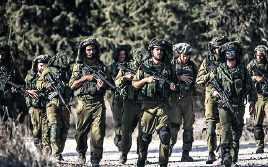
other Western democracies with large Jewish diasporas. I am currently based in New York, completing my Master of Business Administration at NYU’s Stern School of Business, while socialising this vision with prospective collaborators. Conversations are also underway in the UK, New Zealand, Germany, and South Korea.
In my judgment, there is no more e ective antidote to antisemitism than involving nonJews in the lived reality of Israel. Importantly, most of our programme funding will be spent in Israel – supporting communities and rebuilding an economy wounded by an existential war and appealing to donors. This year I returned to Israel as part of a senior international delegation. I entered
Gaza alongside the IDF. What I witnessed, rea rmed everything I knew. The IDF is the most educated, ethical, and lawful military force in world history — operating under scrutiny in a diabolically complex environment. They face not only terrorists with rifles, but terrorists with press and “health ministry” passes — armed with cameras instead of guns, but every bit as committed to the cause of destruction.
To Jewish readers: be proud of your sons and daughters. I’ve served in war. I am confident these young Israelis will reintegrate into society as extraordinary citizens, husbands, wives, fathers and daughters. They fight with love in their hearts, not hate. They understand the stakes. Their generation — the Iron Swords Generation – may one day be remembered as Israel’s finest.
It is my assessment that things will get worse before they improve. But improve they will: on the shoulders of those, like me, who choose to stand up and share the burden. Together, we will build a legacy our grandchildren will one day inherit. Together, we will prevail.
u Colonel Michael Scott is founder and chief executive of The 2023 Foundation
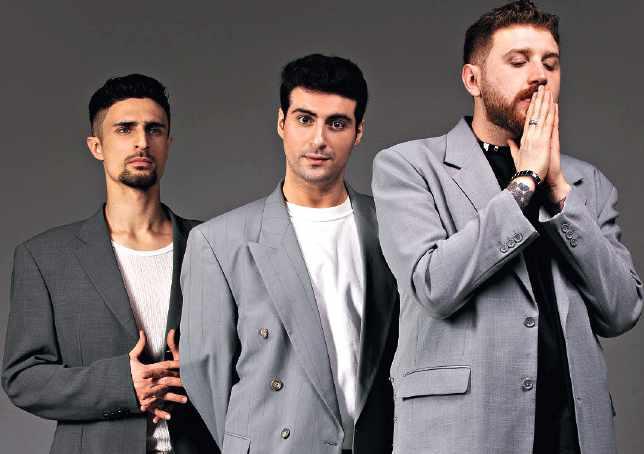

Azerbaijan’s Eurovision Song Contest entry features a Jewish lead singer. Michelle Rosenberg meets him
Azerbaijani band Mamagama believe in good music, peace and exceptionally good hummus.

Guitarist Hasan Heydar, 31, drummer Arif Imanov, 29 and lead singer Asaf (Sefael) Mishiyev, 32, are performing at the most kitsch television event of the year: Eurovision. Named in honour of an Alan Parsons Project song, the group from capital city Baku have been together for four years, with their sound inspired by Daft Punk and American disco band Chicthey.
















































The trio released debut single My Medicine in 2022 and gained popularity with an award-winning performance of their song Dreamer at Kënga Magjike, one of the biggest music festivals in Albania.
Shortlisted for the 2023 Azerbaijani selection for Eurovision but ultimately not selected, this year they were internally confirmed as representatives of their country (which last won in 2011) in February with their entry Run with U.
Straight o the bat, Asaf, who withdrew from his country’s version of singing competition The Voice to focus on Eurovision, says that Yuval Raphael, Israel’s contender, is his favourite. “Best song, best singer, best artist.”
with his Chabad rabbi, says: “My parents are Jewish, my grandparents are Jewish. The mountain Jews of Azerbaijan speak Juhuri; this is the Persian language, like Ashkenazi Jewish people speak Yiddish. We have two Jewish schools in Baku and two synagogues.”




































A perhaps unsurprising response from a Jewish singer in a predominately Muslim country (his bandmates are both Muslim), it’s still a refreshing admission for a contest whose much-loved reputation for over-thetop, glitter-glam, camp spectacle has become overshadowed by ugly political activism.
This week, the Artists for Palestine group published an open letter from 72 former Eurovision competitors, calling for a ban on Israel and its national broadcaster KAN, from this year’s contest in Switzerland.
Last year’s Israeli entrant, Eden Golan, had to be surrounded by security guards, isolated in her room for her own safety.
He adds that every Azerbaijani “can absolutely call Azerbaijan his motherland, because no matter your nation or your culture, everyone here lives in peace and love. We celebrate our holidays together, no matter whether it’s a Jewish holiday, Muslim holiday or Christian holiday. Jewish people here are just like brothers and sisters”. Hassan, a Lebanese Arab who has been friends with Asaf for more than a decade, agrees: “I’m non-religious. I was born in a Muslim family and in the culture, but we respected Jews. There was no pressure or hatred towards Jews. It’s normal for me. Many of my childhood friends are Jews, as is my best friend. I respect Jews, and I respect everything about your culture.”
Rather fittingly, they attempt to teach me some Azerbaijan words, the first is salaam, which means peace.
The trio happily perform an acapella version of their song, then discuss shawarma and tabbouleh and how their costumes will incorporate traditional Azerbaijan elements.










All this appears to be very firmly background noise to Mamagama. They say they are, albeit most likely at the recommendation of their management, determinedly nonpolitical.
Arif namechecks Bob Dylan, Leonard Cohen and Amy Winehouse as being among his favourite musicians, voting Brazil’s Eloy Casagrande, England’s John Bonham and the USA’s Matt Garstka as three of the best drummers in the world.







They don’t “mix politics with the music contest. Music is music and culture is culture. We want to represent our culture and our values, which are about love, about peace, no matter from which country you are from, which nation or which religion”.
Asaf , who enjoys Friday night meals
Returning to the cultural juggernaut that is Eurovision, they collectively say that during the competition, “we’ll just do our job. We’ll just go out there and do our best. And Yuval should know that she has a friend in us. We will support her.”
• Mamagama performs in the first Eurovision semi final on Tuesday 13 May

Primary and secondary school children demonstrate their skills in story writing competition, finds Louisa Walters
At the end of last year PJ Library, together with WIZO and Jewish News, launched its regular story writing competition, giving primary and secondary school children the chance to put their writing skills to the test. The theme, strength, could be interpreted in any way and submitted in the form of prose, poetry or cartoon. The judges were really impressed with the quality of the entries and choosing winners was a challenge.
Lauren Hamburger, director of PJ Library for Europe, said: “It was inspiring to read so many strong entries about where school children are seeing strength – from relatives to teachers, sporting figures to Jewish heroes. They underlined the power that can be found in a well-

written story.”
Maureen Fisher, CEO at Wizo, said: “We were struck by the di erent creative interpretations and meaning attached to the word ‘strength’.
“The maturity and thoughtfulness from all age groups was impressive across all genres of entry.”

In the primary school category
Bobbi Freeman, who is in Year 5 at King David Primary School in Liverpool, won with The Shero, a moving poem about how a woman left at home while her husband is out fighting has a quiet strength.
The runner up was Ava Nicholson, also in Year 5, who wrote a lovely poem about her mum and how strong she is on the inside.
Ori Rum Zemet came first in the secondary school category

with The Black October, an engaging story that opens with the chilling line: “A siren slices through my dream.”
Ori is in Year 8 at Israel Arts and Science Academy.
Ethan Levison, Lev Inyutin and Vaughn S Nagi in Year 8 at Leeds Jewish Free School were secondary school runners-up with Roots of Resilience, a powerful poem about communal strength, which they said was “by and about” them.
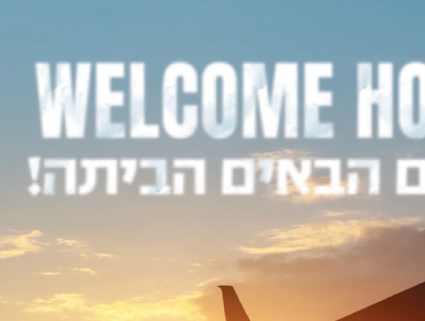

Many congratulations to the winners and the runners-up.
The winners will each receive an iPad plus one for their school. The primary school runner-up will get books from PJ Library and the secondary runner-up will receive book tokens.
All the winning entries can be enjoyed at jewishnews.co.uk/ storywriting.


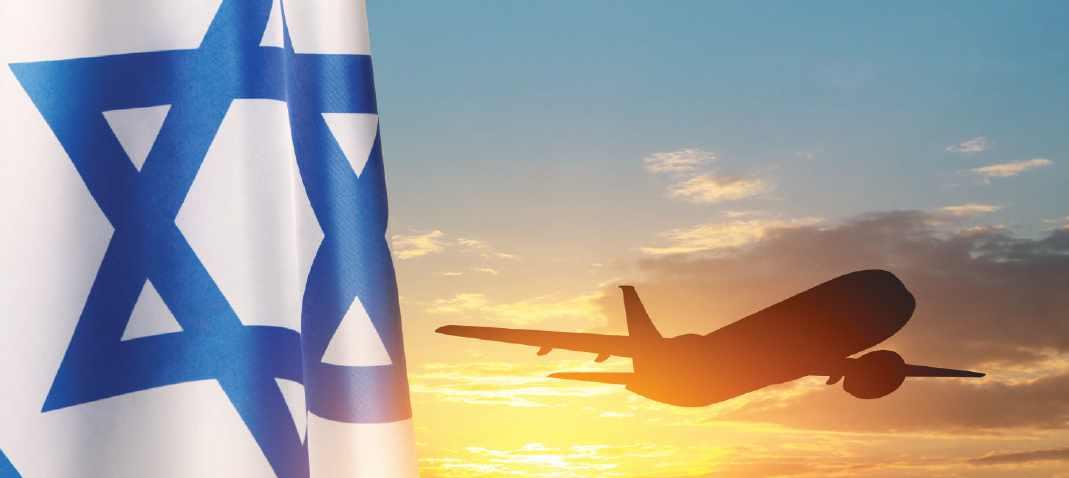












BY RABBI ROBYN ASHWORTH-STEEN CO-CHAIR OF THE ASSEMBLY OF REFORM RABBIS AND CANTORS
Sitting in my home in Manchester just over two years ago, I received an email from Dean Rogers Govender, of Manchester Cathedral. Receiving such an email was not particularly unusual, as the cathedral often reaches out to faith partners and is the centre of bringing our communities together. But this email was di erent. I opened the attachment and found an invitation to meet the Pope. Such an opportunity was not something that, as a rabbi, I thought would ever happen. But happen it did.
Along with the Dean, Bishop John Arnold, Mayor Andy Burnham, my colleague Rabbi Warren Elf and many other religious leaders, activists and community leaders, we travelled to Rome as a Mancunian delegation to
bring awareness and action on the issue of the climate crisis.
I stayed with the Sisters of Zion, a religious order of nuns who have always been friends to Progressive Judaism; many a nun has studied at Leo Baeck College over the years.
From that sanctuary I explored Rome, its food, architecture, and with the delegation, many di erent religious spaces – we met with Rome faith leaders and explored our relationship to the planet.
In our briefing before meeting Pope Francis we were told about the etiquette and customs so, on the day, I put on black clothes, as requested and, after a vegan croissant en route, I made my way to meet the delegation at the Vatican.
We were ushered through many ornate rooms before reaching the final room where we would meet the Pope, who, just out of hospital, had already been working from the crack of dawn.
The door opened and we walked in and the Pope, unexpectedly, was standing just inside
Israel’s future is shifting—join leading experts to unpack the challenges, opportunities, and big ideas shaping what’s next. 7–8PM TUESDAYS ONLINE

Dr Tal Becker 13 May
Ethics of War and Peace –Facing the Moral Challenges of this Moment
What are the profound moral and ethical dilemmas confronting Israel in times of both war and in the pursuit of peace?


Dr Elana Stein Hain 20 May New Directions in Religious Zionism
What are the emerging counter-voices within Religious Zionism and what ideas are they advocating for? How does the ongoing conflict affect dynamics within this population and their position within Israeli society?


Dr Micah Goodman 10 June
How the Struggle Between Israel and Iran May Reshape Israeli Identity
Who must Israel become to overcome Iran? The answer to this question holds an historic opportunity for healing and rejuvenating Israeli society.

Yossi Klein Halevi 17 June
What Comes Next for Israel and Zionism
Israeli society experienced two scenarios of unravelling: The judicial reform crisis and October 7. This conversation will explore the post-war choices Israelis must make to restore national solidarity.



the room, ready to shake each of our hands. I was caught o guard.
We walked in, sat in a circle and listened to Bishop John Arnold as he read our opening speech. There was simultaneous translation as the Pope then shared his reply with us.
A stimulating series where our progressive rabbis consider Judaism in the face of 21st-century issues
He welcomed us and did not hold back from stating our responsibility: “Your united witness is particularly eloquent, since the history of your city is closely linked to the industrial revolution, with its legacy of immense technical and economic progress, together with an admittedly negative impact on the human and natural environment.”
He referred to his earlier statement on the climate, saying: “We need, in a word, to acknowledge that the environmental and social crisis of our time are not two separate crises but one (cf. [the 2015 encyclical or papal letter] Laudato Si’, paragraph 139).”
The Pope ended by asking us to remember him in our prayer. Gifts were given and, on the way out, we once more shook his hand. O cial photos were taken and blessings were given.
We walked out feeling the immensity of that moment, a man at the seat of immense power who, despite the complexities of the Catholic Church, had tried to reach across divides and lead with integrity and humility. May his memory be for a blessing.

The Foundation for Jewish Heritage works in the UK and internationally on the preservation of Jewish built heritage at risk. We have an impressive leadership, an ambitious mission and our work is growing.
Here is our website: https://www.foundationforjewishheritage.com/
We are now looking to appoint an experienced Operations Manager to join our team, helping to ensure the smooth running and development of our charity.
Given the nature of the role, candidates would need to live in the London area.
Here is a link giving more details including how to apply: https://www.foundationforjewishheritage.com/post/we-arerecruiting-operations-manager
For more information, contact Chief Executive Michael Mail at: michaelmail@foundationforjewishheritage.com


